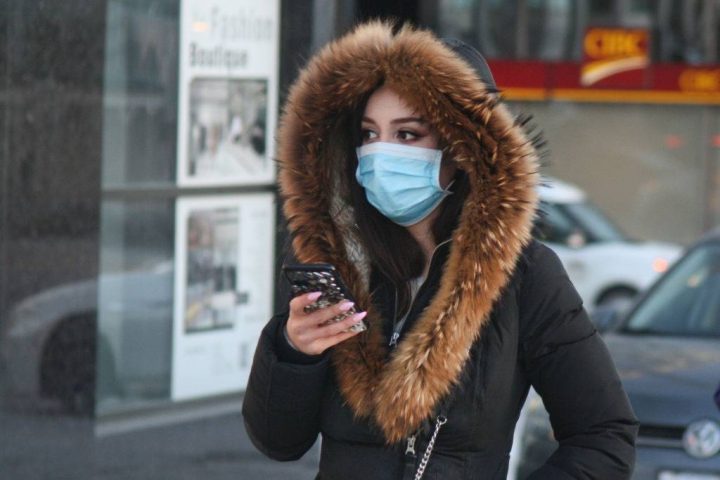As of Sunday, all Canadian provinces have announced confirmed or presumptive cases of COVID-19, the illness caused by coronavirus.

As the virus continues to spread, fear is spreading as well.
A practicing clinical psychologist in Halifax says it’s important to take a step back and be mindful of the fear, anxiety and panic that people are spreading to one another, and learn how to cope with the negative emotions.
“COVID-19 can be contagious, but emotions can be contagious,” says Dr. Simon Sherry, who’s also a professor in the department of psychology and neuroscience at Dalhousie University.
READ MORE: 3 presumptive cases of coronavirus identified in Nova Scotia, new prevention measures introduced
Sherry says the mechanism for spreading fear is through endless conversations about the virus, which people need to avoid for their mental well-being.
“It doesn’t have to be the number one topic around the water cooler or the dinner table. It’s fine to set up boundaries and to not communicate about COVID-19,” Sherry says.
“Maybe one conversation a day is enough.”
“A basic factual update from a credible source per day should be sufficient,” he added.
He says for now, it’s important to ‘disentangle’ what is a factual threat from what is a perceived threat.
According to Sherry, information on the factual threat can come from credible sources like Health Canada or the World Health Organization, but that the perceived threat can lead people to overestimate the likelihood of danger.

Get weekly health news
“When that perceived threat goes high, so too does anxiety. People can start to think catastrophically,” Sherry says.
“COVID-19 is like a fire, catastrophic thinking is like gasoline.”
“And so the factual threat then gets amplified greatly, so you start to see more danger than is actually there.”

Another challenge is that when it comes to anxiety, he says, there’s uncertainty “and it can be challenging to tolerate uncertainty.”
READ MORE: Canadians abroad urged to return home while ‘commercial options still available’
“What I would want people to understand is that it may be difficult, if not impossible, for you to control COVID-19 on a global level. But you can control your individual response to it.”
Sherry says whatever distress people are experiencing right now — it will pass.
“People are resilient, resourceful, adaptive and we would expect people to rebound within a matter of days to weeks.”
“We’re not expecting that humans are going to have long term psychiatric distress arising from this health crisis. Now, to be sure, anxiety, panic, fear, intrusive thoughts, stress, bodily tension are all going to be part of this. But people will adjust and move past that negative mood.”
READ MORE: Coronavirus calls for self-isolation. Here’s how to do it properly
He recommends that people spend less time on social media, and invest their time and energy in showing solidarity with people across the country.
“Negative information about COVID- 19 is a button-click away and it leads to a sort of digital distortion wherein something that is objectively a problem becomes a much bigger perceived threat, due to constantly accessing phones to check, to seek reassurance or to get information.’
Sherry says “there is an excellent opportunity here” for the community to come together and for people to place greater emphasis on family, relationships and connection during this time.

“You can think about what are some active and constructive ways I can do to help a neighbour who is elderly or to help a friend who was ill or immune-compromised.”
Sherry notes that people can also cope actively with the problem by washing their hands and keeping a distance from others.
“I think that people are going to learn that we are resilient and resourceful and adaptive and that we can cope and rebound quite effectively even with stressors of this nature,” Sherry says.
Concerned about COVID-19? Here are some things you need to know:
Symptoms can include fever, cough and difficulty breathing – very similar to a cold or flu. Some people can develop a more severe illness. People most at risk of this include older adults and people with severe chronic medical conditions like heart, lung or kidney disease.
To prevent the virus from spreading, experts recommend frequent handwashing and coughing into your sleeve. And if you get sick, stay at home.
For full COVID-19 coverage from Global News, click here.









Comments
Want to discuss? Please read our Commenting Policy first.